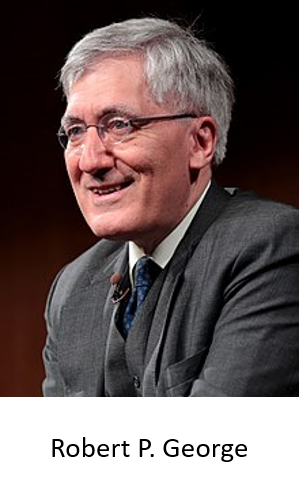University Professors Sign Up for Free Speech
An exciting development has been quietly unfolding in higher education since early summer 2022. The Stanford Academic Freedom Declaration garnered some publicity when it was issued last June with 160 professors’ signatures, but much lesser known is the fact that as of this writing it has more than 1,650 signatures and counting. While members of the general public are also welcome to sign, most of the signatories are professors and affiliates of the nation’s non-sectarian universities and colleges.
Essentially, the declaration, or the “open letter” as it has also been called, urges universities and colleges to move away from the speech-stifling wokeness that has become so pervasive in recent years, and instead to embrace academic freedom. As writer/contributor Esther Wickham noted in The College Fix, the Declaration advises universities “to adopt and implement the ‘Chicago Trifecta’ — the Chicago Principles on unilateral free speech, the Kalven report that requires institutional neutrality on political and social topics, and the Shils report, making ‘academic contribution the sole basis for hiring and promotion.’”
The Chicago Trifecta
The Chicago Principles were developed in 2014 at The University of Chicago through a committee made up of university faculty appointed by then-president Robert J. Zimmer (now chairman emeritus) and Provost Eric D. Isaacs. Zimmer and Isaacs were concerned about “recent events nationwide that have tested institutional commitments to free and open discourse.” Their committee issued a report stating that “the principle of complete freedom of speech on all subjects has from the beginning been regarded as fundamental in the University of Chicago” and that “this principle can neither now nor at any future time be called in question.”
 The report harkens back to the founding of the university in 1902 and offers examples of its commitment to free speech over the one hundred-plus years since its founding, including invitations to controversial on-campus speakers. It concludes with a quote from the university’s founder, Robert M. Hutchins, who maintained that “without a vibrant commitment to free and open inquiry, a university ceases to be a university.”
The report harkens back to the founding of the university in 1902 and offers examples of its commitment to free speech over the one hundred-plus years since its founding, including invitations to controversial on-campus speakers. It concludes with a quote from the university’s founder, Robert M. Hutchins, who maintained that “without a vibrant commitment to free and open inquiry, a university ceases to be a university.”
The Kalven report is similar in its commitment to free speech. It states in part: “To perform its mission in society, a university must sustain an extraordinary environment of freedom of inquiry and maintain an independence from political fashions, passions, and pressures.”
Also developed by The University of Chicago and published on November 11, 1967 by a committee under the chairmanship of Harry Kalven, Jr., hence its name, the report continues: “The university is the home and sponsor of critics; it is not itself the critic. It is, to go back once again to the classic phrase, a community of scholars ... A university, if it is to be true to its faith in intellectual inquiry, must embrace, be hospitable to, and encourage the widest diversity of views within its own community. It is a community but only for the limited, albeit great, purposes of teaching and research. It is not a club, it is not a trade association, it is not a lobby.”
The Shils report followed in 1972, stating in part that there are “three major functions of universities in the modern world.” These functions include: “(1) the discovery of important new knowledge; (2) the communication of that knowledge to students and the cultivation in them of the understanding and skills which enable them to engage in the further pursuit of knowledge; and (3) the training of students for entry into professions which require for their practice a systematic body of specialized knowledge.”
Can the Declaration make a difference?
Some may believe that the Marxist/Progressivist propaganda that has spread throughout higher education is a result of the traditional liberal tolerance of all viewpoints, and that this has paradoxically resulted in the loss of free speech today. But it may also be true that the restrictions on our freedoms, not only at the university level but throughout our culture as well, are primarily the result of a 60-year political agenda designed to destroy the American system.
Robert P. George, professor of Jurisprudence and director of the James Madison Program in American Ideals and Institutions at Princeton University, wrote in Deseret News: “Historically, censorship has supported monstrous regimes and their ideologies. Bad ideas are only defeated by argument and persuasion, not by suppression. True justice and freedom cannot exist without each other.”
 Professor George believes that “freedom is a culture” which must be nurtured if it is to be preserved and that university leaders “must also promote and institutionalize free speech and academic freedom by concrete actions.” One of his recommendations is that colleges emphasize in orientation materials for incoming freshmen that “[f]ree speech, free inquiry, tolerance for opposing views, meeting such views with argument, logic and fact, abstaining from ad-hominem attacks, character assassination, doxing, and other unethical behavior” is the expectation for all students.
Professor George believes that “freedom is a culture” which must be nurtured if it is to be preserved and that university leaders “must also promote and institutionalize free speech and academic freedom by concrete actions.” One of his recommendations is that colleges emphasize in orientation materials for incoming freshmen that “[f]ree speech, free inquiry, tolerance for opposing views, meeting such views with argument, logic and fact, abstaining from ad-hominem attacks, character assassination, doxing, and other unethical behavior” is the expectation for all students.
New York University Professor Jonathan Haidt has a bleaker outlook for the future, but the good news is that he speaks out in traditionally liberal circles, which could make for a broader appeal to restore basic freedoms. For example, Haidt published an essay in The Atlantic which compares “what has happened in the U.S. over the last decade to the biblical Tower of Babel — how we’ve become disoriented and ‘unable to speak the same language or recognize the same truth’ to the point of ‘becoming like two different countries’ with divergent ideas about ‘the Constitution, economics, and American history.’”
Haidt believes “we are on a path to catastrophic failure of our democracy” if we don’t change course, and fears that “the next war, financial meltdown, or constitutional crisis” may cause the collapse of society. Others hope that the dissemination of The Stanford Academic Freedom Declaration and similar efforts can gain enough traction to help avoid such a calamity.
Cutting the purse strings
John Cochrane, Stanford economist and co-author of the Declaration, told The College Fix in an email that “The larger hope is to bring back academic freedom on campus and in the academic enterprise more generally. Only with robust academic freedom, the ability to investigate ideas and bring out uncomfortable facts, does scholarship bring about new and reliable knowledge, especially on crucial issues to our society.”
The Declaration points out that many colleges and universities claim to support free speech yet “punish those who express views deemed to be incorrect and enforce ideological conformity in hiring and promotions.”
Cochrane adds that often university funding sources demand conformance with the accepted political narrative “instead of a free exchange of ideas.” This begs the question of why putting a wall between funding resources and academics isn’t the single most important goal at every institution of higher learning, since a purse-string-enforced narrative can only serve to create fear of speaking out among university professors, staff, and students. Cochrane says such fear has impeded the signing of the Declaration, with some academics afraid because other signatories have been labeled “well known deplorables.”
He wrote: “That reaction tells us a big part of the problem. All along we have tried very hard to reach out to self-described left/liberal/democrat colleagues, who privately bemoan what’s going on but are too afraid to be seen in public. But why not fix it: if some of you sign perhaps that will give courage for more of you to sign. Take it over, get together with your friends, add lots of signatures, make this your cause, prove that we can stand together for freedom!”
With more than 1,650 signatories thus far, there is reason to hope that the higher education community and members of the general public as well, will band together to restore basic freedoms on college campuses, and that the Stanford Declaration may prove to be a galvanizing step in the right direction.
Want to be notified of new
Education Reporter content?
Your information will NOT be sold or shared and will ONLY be used to notify you of new content.
Click Here
Return to Home Page
